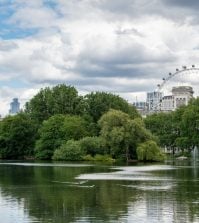Select committee ‘astonished’ by UK’s failure to plan for pandemic

The UK government failed to consider in advance how it might deal with the economic impacts of a pandemic, rushed its response to COVID-19, and must “ensure it doesn’t repeat the same mistakes” in the event of a second wave of infections, the House of Commons’ Public Accounts Committee (PAC) has said.
In its report, published last week, PAC said it was “astonished” by the government’s failure to plan for the economic effects of a pandemic. Noting that in 2016 the government undertook a three-day simulation of an international flu outbreak, Exercise Cygnus, it questioned why the simulation – which involved 950 emergency planning officials – focused solely on health and did not consider an economic response. The Department for Business, Energy and Industrial Strategy “was not even aware of the exercise”, it pointed out.
It added that COVID-19 government schemes were drawn up “on the hoof” by chancellor Rishi Sunak and the Treasury, weeks after the first case of coronavirus was detected in the UK. The Treasury did not announce plans for “significant funding” to support businesses and individuals until the Budget on 11 March, “and it did not become clear to the Treasury until the following week that a furlough scheme would be needed,” it said.
“This meant that the economic strategy was of necessity rushed and reactive, initially a one-size-fits-all response that’s leaving people – and whole sectors of the economy – behind,” the committee’s chairwoman, Labour MP Meg Hillier said.
However, the committee acknowledged that the government had mobilised a “wide-ranging response” to the COVID-19 pandemic, delivering initiatives worth billions of pounds to support the health and social care sector, businesses and individuals.
“Fundamental flaws” in PPE procurement
The committee was also critical of how the issue of personal protective equipment (PPE) was handled, saying there were “fundamental flaws in the government’s central procurement and local distribution of vital goods and equipment”.
It said it recognised that the government was faced with a “massive challenge” to procure a huge quantity of PPE for 58,000 separate sites, including hospitals and care homes. But MPs noted that despite a pandemic heading up the government’s list of non-malicious risks, “it failed to stock up in advance” with PPE supplies.
“We recognise that decisions are not easy and that the trajectory of the pandemic within the population is not in the government’s control, but there are many lessons from this first phase of the pandemic that the government must learn,” the report said.
It called for more transparency in government decision-making, which it said had been “poorly co-ordinated” by the Cabinet Office and No10. And it recommended that the Cabinet Office review its contingency planning for the most serious risks, ensuring that these consider whole-of-government impacts and involve economic modelling.
Government’s response
In responding to the PAC report, the government said it regularly tested its pandemic plans, which enabled a “rapid” response.
“As the public would expect, we regularly test our pandemic plans, allowing us to rapidly respond to this unprecedented crisis and protect the NHS,” a government spokesperson said, as reported by the BBC. “It was clear that coronavirus would affect all areas of the country. That’s why we immediately put in place an unprecedented initial economic support package for jobs and business worth £160bn (US$207bn).”
The spokesperson added that the next stage of the economic response will make a further £30bn (US$39bn) available, including more than £100m (US$129m) “to support children to learn at home”.






















